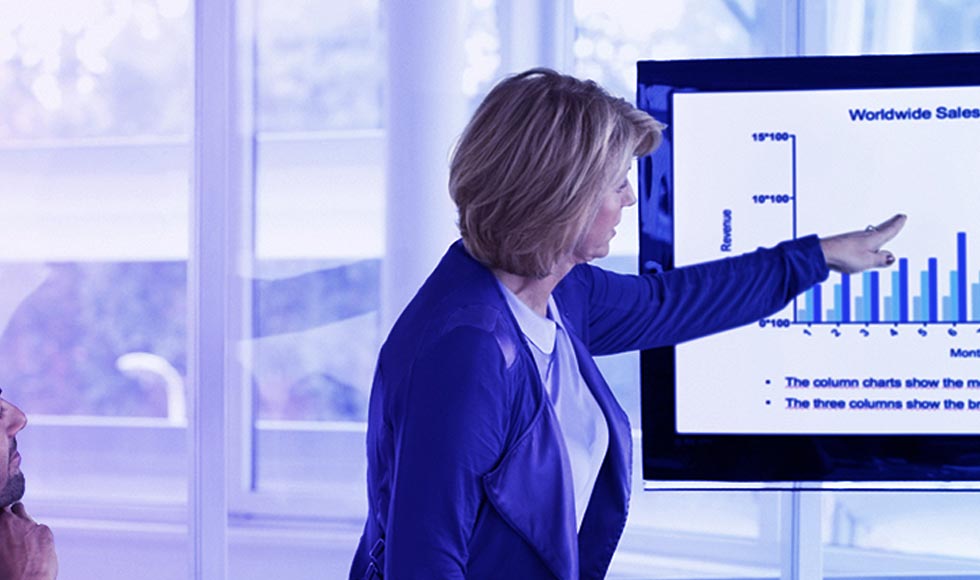Delivering an Innovative and Reliable Audit in an Age of Disruption
A better audit experience starts with a different approach.

Our Approach
At KPMG, a better audit experience starts with the recognition that to execute a well-planned audit that’s consistent, rich with insights, and efficient, we must anticipate uncertainty, complications, and change – we must anticipate the unplanned.
Why this matters: No matter what’s going on in your business, your audit must consistently deliver the efficiencies and insights you need, while maintaining the highest quality standards.
Market complexities are rising: Today, that need to anticipate the unexpected underscores every one of my C-suite, board, and audit committee conversations. As our recent CEO Outlook showed, 91% of U.S. CEOs believe there will be a recession in the next 12 months and that it won’t be short-lived.
Yet, within this context:
- 56% of CEOs report they are likely to undertake acquisitions that will significantly impact their organizations
- 78% of CEOs report they are executing an aggressive digital investment strategy to secure first-mover or fast-follower status
- 70% – nearly double last year’s number – report that ESG programs are improving their financial performance
Going deeper – implications for the audit: As I think about how this applies to our own ongoing efforts to transform the audit, five principles come to mind for every one of our engagement teams and how they can deliver an exceptional audit experience:
1. Understand each business is unique – they face different risks and opportunities, are enabled by different and always-evolving technology environments, and their industry and sector face disruption at every turn.
For us, this means delivering a team – from experienced partners to new associates – with the right mix of industry knowledge, technology and data capabilities, and diverse perspectives.
We don’t seek to retrofit a top-down technology-enabled audit strategy to their situation. Rather, we come together to collaboratively coordinate the audit through Joint Continuous Improvement Workshops, Audit Ignition Centers, and more. We start by understanding their business first.
2. Use data and automation to focus on the areas of highest risks. We announced in 2020 that we would spend $5 billion globally on upgrading our digital capabilities. For KPMG and our audits, we are infusing KPMG Clara, our global smart audit platform, with more data to deliver an ever more refined risk-based audit, regardless of how advanced a particular company’s technology environment happens to be. All of our teams are leveraging data and analytic capabilities throughout the audit, but we are focused on accelerating the use of more advanced and differentiated capabilities. In fact, last year we had 11,000+ deployments of advanced data and analytics, and automation solutions within our audits.
3. Create the capacity, processes, and capabilities to effectively respond to the unexpected. As our teams plan the audit tailored to your business, we focus on leveraging data and technology as well as our rapidly scaling centers of excellence – our KPMG Center for Audit Solutions – to pull work forward. By collaborating across our firm, we scale best practices to standardize, centralize, and automate key parts of the audit consistently across our portfolio. This process helps to facilitate monthly monitoring of key audit execution metrics as well as pre-issuance reviews for all of our public integrated audits. Together, this effort builds in time to focus on those high-risk areas. In fact, for 2022 calendar year-end public integrated audits, roughly 40% of our audit hours were completed three months before year-end. We expect that well over half of the work be completed even before the company closes its books.
4. Bring together specialists across our multi-disciplinary firm to solve complex challenges. The right team, a more data-driven risk assessment, and a well-executed audit plan better enable our team to thoughtfully leverage specialists across our multi-disciplinary firm to review high-risk areas and deliver insights to your business. Whether it’s valuations, tax issues, IT questions, supply chain, cybersecurity, or other areas, the depth and breadth of KPMG’s capabilities enable more seamless access to the right knowledge and skills at the right time. What does this look like in practice?
- In FY22, more than 1.2 million audit hours were driven by specialists outside of our audit practice
- Moreover, we completed the integration of 1,000+ Technology Assurance partners and professionals into our Audit practice, accelerating innovation and collaboration
- Lastly, across our firm, we spent 33,000+ hours learning about ESG through Executive Education, collaborations with NYU Stern’s Center for Sustainable Business, University of Cambridge’s Judge Business School, and more
5. Act today with an eye toward tomorrow. I believe the next 10 years will see more change to the audit profession than any time in its history. The impacts of new technology, business digitalization, and ESG will fundamentally reshape the day-to-day life of the auditor as our profession expands its focus to best protect the capital markets.
As the leader of our nearly 10,000-person practice, I never forget that this is still and always will be a people profession. Enabling our partners and professionals to advance their careers with the skills to lead our profession is essential. To learn more, read KPMG Audit Talent and Culture Leader Becky Sproul’s review of our actions to build a team of Next Gen Auditors.
By delivering on each of these areas across all our audits, we will continue to deliver the quality, insights, and experience our clients and the marketplace deserve. And I have no doubt we will do so.
Explore more
Contributors
